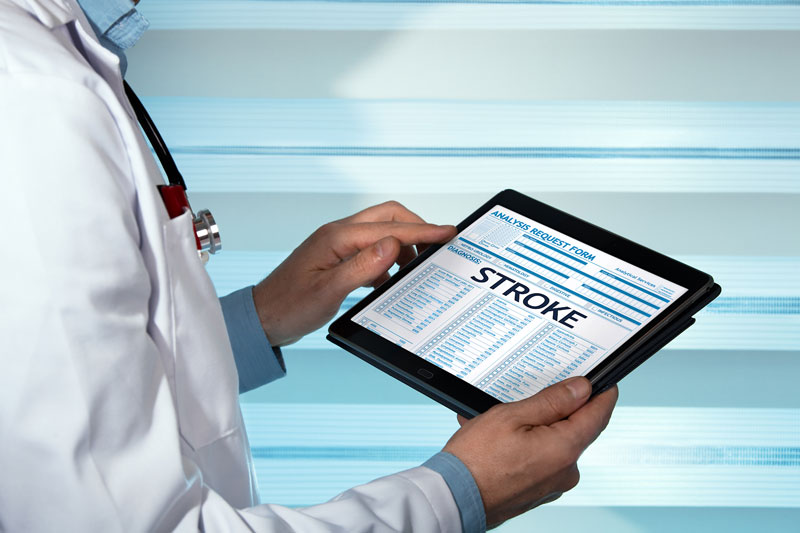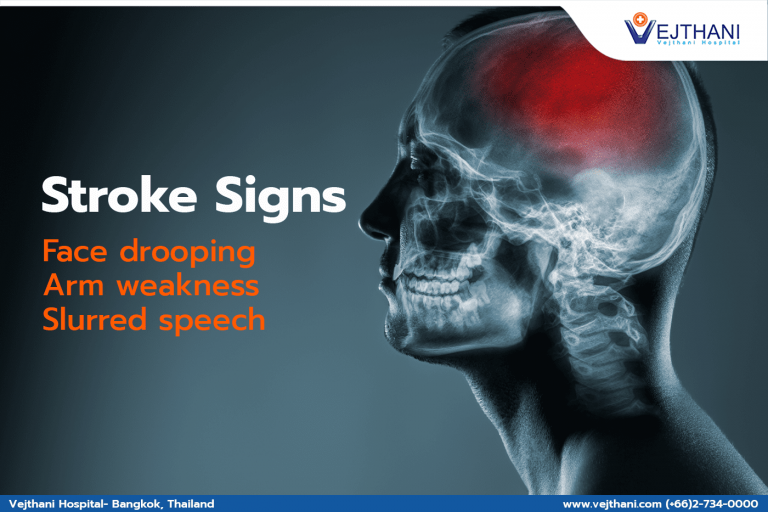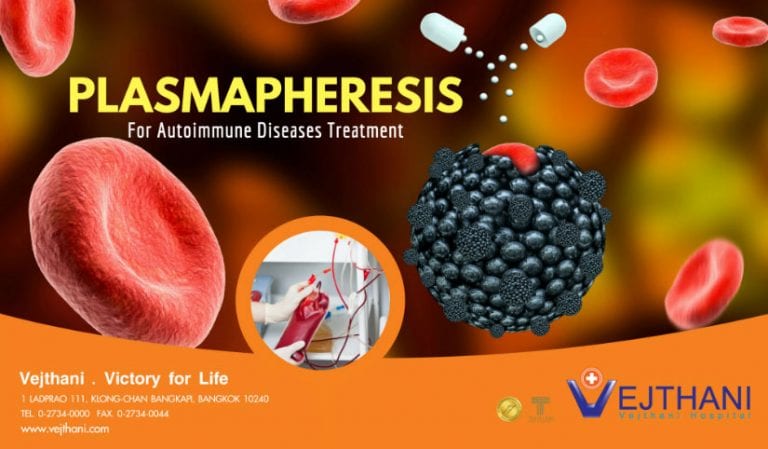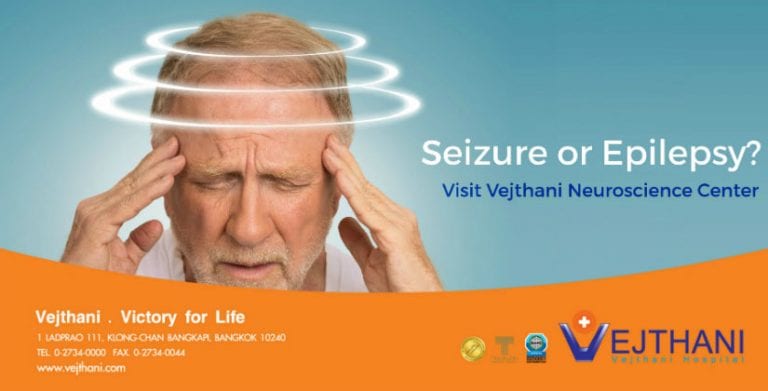

Ischemic Stroke
An ischemic stroke occurs when there is an interruption of blood supply to the brain due to a blockage and narrowing of the artery. This causes numbness, weakness in the arms and legs, slurred speech as well as permanent paresis or paralysis.
In some patients, stroke may be too severe that it could lead to fatality. If patients had acute stroke, treatment in time gives them a chance of being cured and returning to normal life.
Symptoms of Ischemic Stroke
Initial symptoms of ischemic stroke include numbness in the arms and legs, fatigue, dizziness, loss of balance, unstable walking, swallowing difficulties, facial weakness, difficulty speaking or inability to understand, blurred or loss of vision or double vision, and acute severe headache. Many of these symptoms may occur together at once. If the symptoms remain longer than usual or do not tend to improve, the patient must see a doctor immediately for prompt treatment.
Risk Factors of Ischemic Stroke
- Diabetes may cause blockage in the blood vessels that supply blood to the brain and leads to ischemic stroke.
- Hypertension causes thickening of blood vessels faster than usual. This may result in the narrowing or rupturing of the blood vessels.
- Heart disease may be the cause of blood clots in the arteries that supply blood to the brain, making that blood clot flowing through the bloodstream and lodge in the blood vessels of the brain.
- Lifestyle that may contribute to the cause of ischemic stroke includes lack of exercise, smoking, having high cholesterol and the presence of certain hormones in the body.
Ischemic Stroke Prevention
The preliminary measure is to adjust the lifestyle to lower the risk of an ischemic stroke. This includes quitting smoke, keeping body weight to a normal range, exercising regularly, controlling cholesterol levels, avoiding acholic beverages and undergoing an annual health check-up.
For those who are concerned about the risk of having an ischemic stroke, it is crucial to undergo a health checkup every year. This can determine any risks of developing the disease. Regularly exercising to maintain good health is just as important.
For more information, please contact Neuroscience Center, Vejthani Hospital.
Tel. 02-734-0000 ext. 5400
English hotline: (+66) 8-522 38888
- Readers Rating
- Rated 5 stars
5 / 5 ( Reviewers) - Spectacular
- Your Rating






















